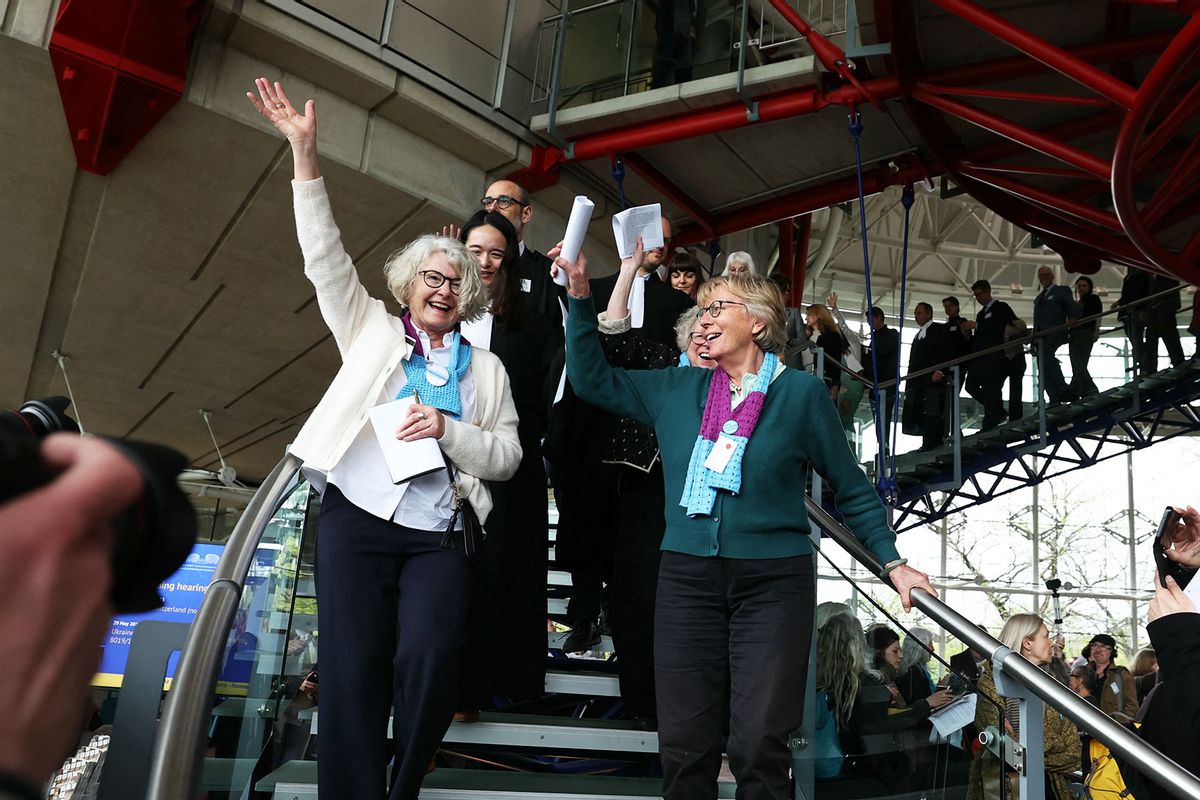A group of elderly Swiss women made history on Tuesday when they became the first plaintiffs to win a climate-related victory in the European Court of Human Rights.
Representing a group of more than 2,000 individuals known as KlimaSeniorinnen — a Swiss German shorthand term for "Senior Women for Climate Protection" — the women successfully argued that because of their age and sex, they cannot leave their homes during heat waves without suffering health attacks.
Court President Siofra O'Leary ruled that the Swiss government has not met its own targets for cutting greenhouse gas emissions and has not set a national carbon budget, thereby putting it at fault.
"It is clear that future generations are likely to bear an increasingly severe burden of the consequences of present failures and omissions to combat climate change," O'Leary said.
KlimaSeniorinnen members told the press they hadn't pursued this case for themselves, but rather for future generations whose basic human rights will continue to be violated by the climate crisis.
"Some of us are just made that way. We are not made to sit in a rocking chair and knit," KlimaSeniorinnen member Elisabeth Stern, 76, told BBC News. "We know statistically that in 10 years we will be gone. So whatever we do now, we are not doing for ourselves, but for the sake of our children and our children's children."
Two other climate-related cases were less successful. A former French mayor who argued that climate inaction puts his town at risk of being submerged in the North Sea saw his case dismissed because he no longer lives in France. A group of Portuguese young people who argued that extreme heat and wildfires made it impossible for them to play outside or go to school, and had caused them severe anxiety, were told to pursue their case in Portuguese courts first.



Shares